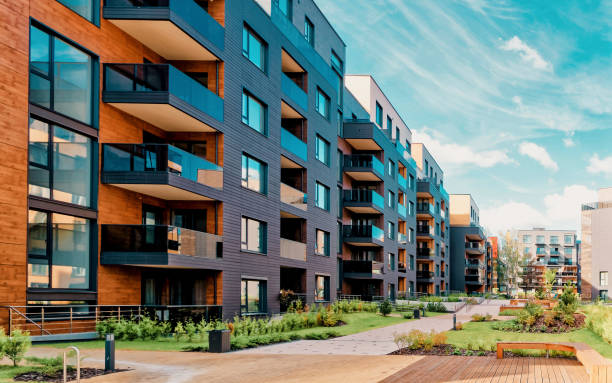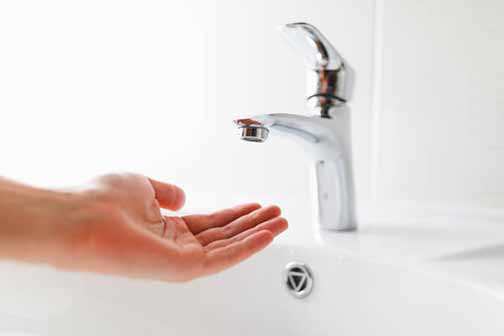
Plumbing problems in a condominium are potentially more destructive than those in a single-family home. That is not because plumbing systems in apartment buildings are much different from those in single-family homes.
The reason is that the plumbing systems in a condominium are so interconnected that problems originating in one of the units can easily affect other units. As a result, small issues can escalate very quickly into major damage and significant repair costs.
That is why, as a condo owner, HOA board member, or contractor, you need firsthand knowledge of the biggest plumbing concerns in apartment buildings. As Librett Real Estate experts advises, identifying the potential issues before they happen will allow you to create an effective response plan.
What are the common plumbing problems you might experience in your Chicago condominium? How do you solve or prevent them? Find answers in the sections below.
6 common condominium plumbing problems
Leaky Faucets
Like in single-family homes, leaky faucets are a major issue in condos. A leaky faucet in one apartment can affect the apartments directly below if the water finds a way to drip down to the next floor. Leaky faucets also waste an unbelievable amount of water. If multiple faucets in the building are leaking at the same time, the problem can add several hundred dollars to the building’s water bill.
Clogged drains
A clogged drain in one of the apartments can ripple outwards to affect other apartments. Depending on where the clog happens, it can impact other condos that share the same drain line. The result is drain lines in many of the apartments in that building will start to clog, leading to a higher risk of flooding.
Running toilets
A running toilet in one condo may not affect the plumbing in another. But the problem can waste vast quantities of water. Due to the number of toilets in the complex, running toilets are a big issue in apartment buildings. If multiple toilets are running at the same time and they are not fixed, the water bill will be excessively high.
Low water pressure
It is not uncommon for faucets on different floors of an apartment building to have different water pressures. Water pressure issues affecting all apartments in the building are from the mains. If the issue affects only a specific floor, it could be due to problems in the water line. If the problem is limited to one apartment or fixture, the cause can often be found within the apartment.
Water heater issues
Water heater issues are among the worst plumbing issues in condos. Whether the water heater is shared by several apartments or dedicated to a single apartment, problems in one unit can affect the heating system in another. That is because all the apartments in the building often share the same ventilation and gas supply lines.
Frozen pipes
Depending on its location, a frozen pipe in the plumbing system of one apartment can cut off the water supply to other apartments in the building. This problem can also be limited to the water supply in a single apartment. Frozen water pipes are a big problem in Chicago because of the harsh winters.

Preventing and solving condo plumbing problems
To prevent or at least minimize the impact of these plumbing problems, condo owners and HOAs need to define stakeholders’ plumbing responsibilities. For most apartment buildings in Chicago, the allocation of responsibility for plumbing problems is based on the following rules:
- The HOA is responsible for common assets; those parts of the plumbing system that are shared.
- Individual homeowners are responsible for sections of the plumbing that are solely theirs.
- Individuals are responsible for damage to others’ property caused by their plumbing.
- The HOA is responsible for plumbing problems resulting from the HOA’s negligence.
In addition to defining each party’s plumbing responsibilities, there should be a schedule for how often the plumbing should be inspected and maintained. For the best overall outcomes, here is an example of the best practices for conducting condo plumbing inspections and preventive care.
For homeowners
- Be on the lookout for dripping faucets and leaky valve.
- Install a cover on drain openings to catch debris and hair.
- Avoid hair products that are known to contribute to drain clogging.
- Use the garbage disposal with caution, and don’t dump grease into the drains.
For the HOA
- Inspect the entire plumbing system at the start of every season.
- At least once a year, have an HVAC company do a comprehensive checkup of the HVAC, including drain lines.
- Pay attention to the condition of pipes; do not delay replacing old pipes with more durable and longer-lasting materials.
- Ensure that residents have different options for reporting the plumbing problems in their apartments.
- Respond to all reported problems promptly and effectively.
To conclude, plumbing problems in condos are not much different from plumbing problems in single-family homes. The complications that come with plumbing issues in apartment buildings are easily solved or avoided with a little planning and good communication between all stakeholders.
